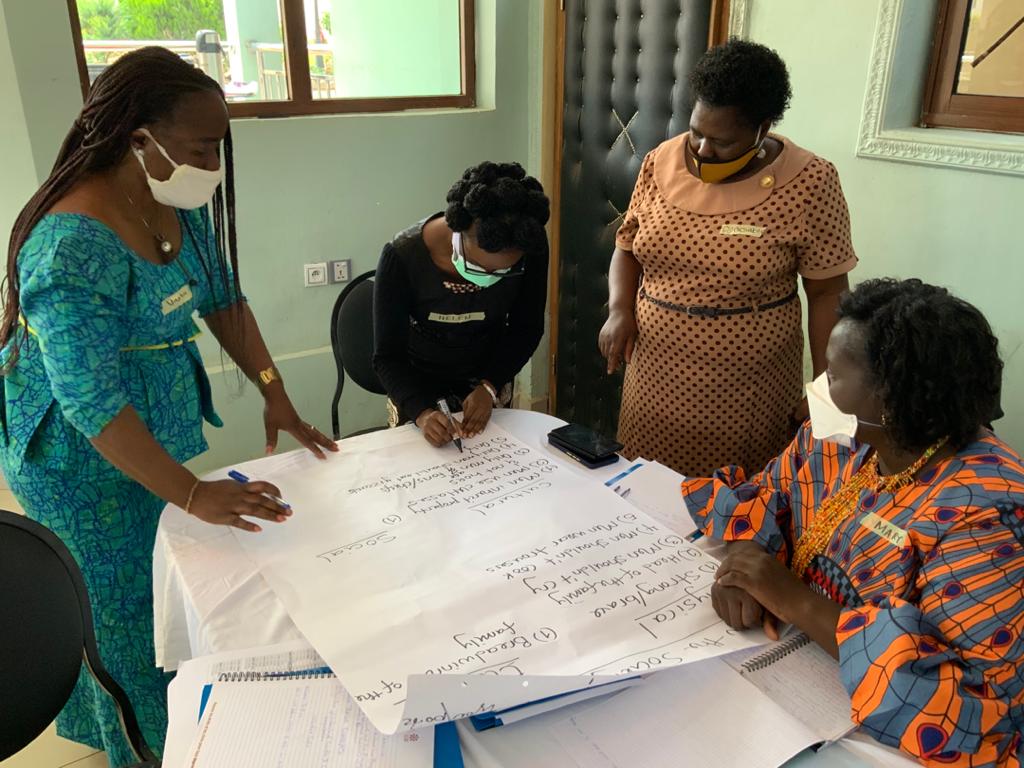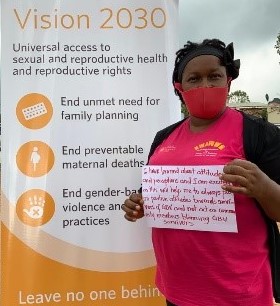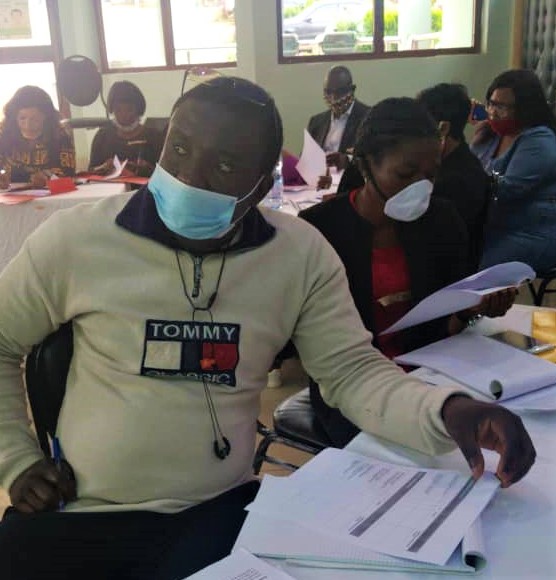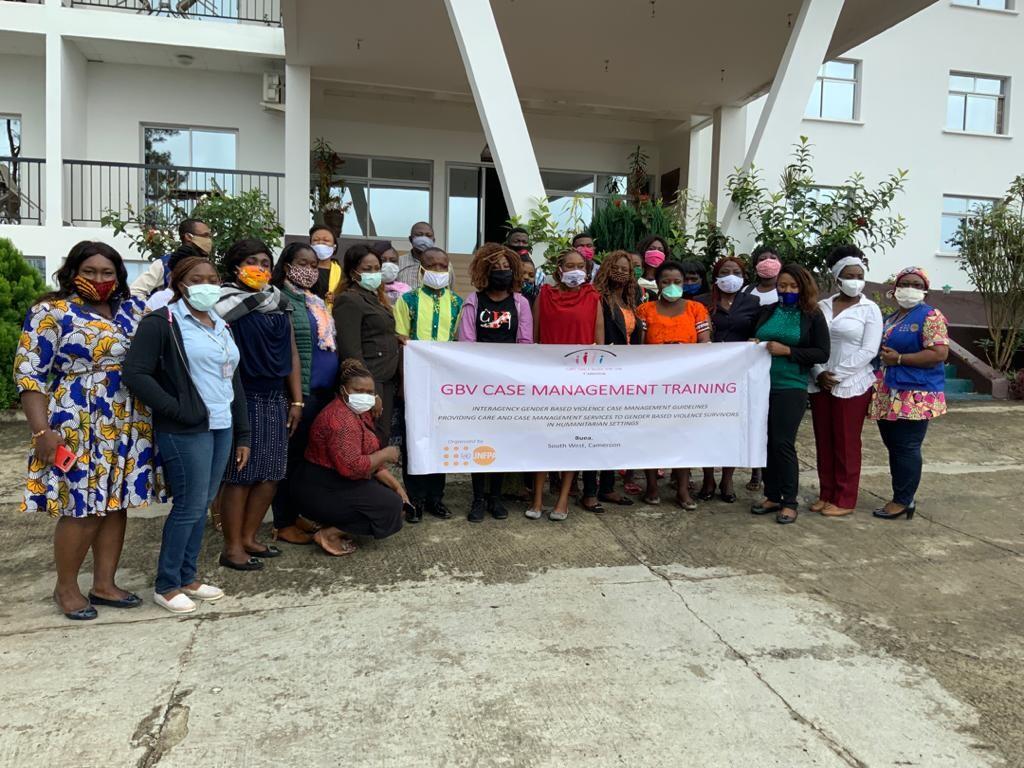
2020
Through two workshops conducted simultaneously in Buea and Bamenda early this month, UNFPA has reinforced the capacities of services providers on GBV case management both in the South West (SW) and the North West (NW) Regions of Cameroon. The training benefited 60 case workers, managers and supervisors from local NGOs currently active on the GBV referral pathways in these Regions.
The humanitarian situation on the ground has witnessed no significant improvement since armed conflicts erupted in 2016. Over 15,780 individuals from 2,625 households were reportedly displaced in both Regions in June 2020
due to ongoing violence. In terms of GBV, at the same period, 21,670 people were reached with activities related to awareness raising; dignity kits distribution, capacity building, psychosocial support and life skill development. 62% of respondents in a GBV assessment acknowledged an increasing trend in GBV incidents and recognized high risks of domestic violence, denial of resources, unwanted pregnancies, child sexual abuse and sex for survival in the current COVID-19 context in those regions.

Participant in Bue/
Photo UNFPA 2020
In the heart of this humanitarian context involving response and mitigation against COVID-19, UNFPA focused on the case management approach to help service providers to tailor individualized service-delivery based on the choices of the survivor. It also stressed that a comprehensive assessment is required to identify the survivor’s needs and that a participatory development plan must be put in place to meet those needs. Moreover, the United Nations Sexual and Reproductive Health Agency recommended its partners better collaboration, communication and coordination for service delivery as means to promote quality and effective outcomes for GBV survivors.
Participants where therefore given the opportunities to enhance their understanding of GBV, its causes and consequences, as well as existing theoretical frameworks amidst the current COVID-19 pandemic.
Baiye Frida, a participant in Buea and Humanitarian coordinator of the Blessing Associates for Women and Children (BAWAC Cameroon), described the initiative as
“The best training so far as it laid more emphasis on the survivor-centred approach and equipped GBV front liners with the right knowledge to manage diverse cases in their communities”.

participant in Bamenda/
Photo UNFPA 2020
Ngwa Evans Fru of the Inter-Faith Vision for Cameroon, one of the participants in Bamenda also shared his impressions:
“Gaining knowledge on case management and the various guiding principles during this training has been very fulfilling for me and I look forward to sharing this knowledge with other colleagues when I go back to my community”
Through these capacity building trainings on case management, UNFPA aligns its contribution as well as that of its local partners to the specific needs of GBV survivors and the requirement of prevention and mitigation of the COVID-19 pandemic. The United Nations Sexual and Reproductive Health Agency reiterates its commitment to supporting the optimising of survivor-centred care in crisis zone for a better and faster recovery and to ending gender-based violence, one of its three transformative results by 2030.


